COP21: unspoken India-U.S. war
An unspoken war has been waged between India and the U.S. at the COP21 Summit in Paris. If the West wants India to opt for more expensive energy options, then they must also reciprocate by sharing technology.
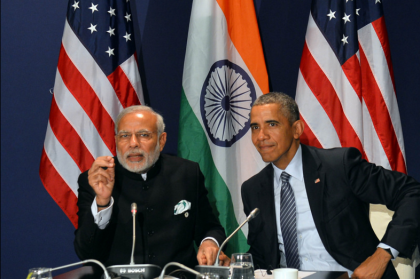 Courtesy: MEA India / Flickr
Courtesy: MEA India / Flickr
An unspoken war has been waged between India and the U.S. at the COP21 Summit in Paris. If the West wants India to opt for more expensive energy options, then they must also reciprocate by sharing technology.
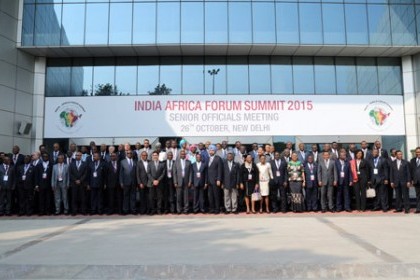 Courtesy: MEA
Courtesy: MEA
The U.S. is urging India to alter its IPR regime, and the potential impact on prices in the pharmaceuticals sector is of concern to African countries that depend on India for low-cost generic medicines. The recent India-Africa Forum Summit in New Delhi sought to address this issue, but it will be a challenge for India to balance competing pressures.
Do the TPP and the proposed India-EU trade deal extend protection of IPR, delaying generic competition for life-saving drugs and keeping their prices high? While these and other possible implications for Indian consumers and pharma companies become clearer over time, India must robustly engage with the debate on trade deals and public interest
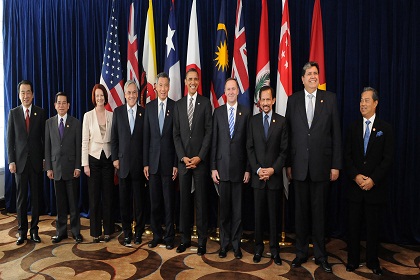 Courtesy: Wikipedia
Courtesy: Wikipedia
The Trans-Pacific Partnership might soon be concluded if the U.S. Congress fast-tracks it, as recently announced, while the Regional Comprehensive Economic Partnership Agreement remains on slow-track. But the TPP, although ambitious, follows an outdated template, and it is the dynamic RCEP that can be a model for a new global rules-based framework
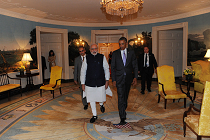 Courtesy: MEA Flickr
Courtesy: MEA Flickr
During President Obama’s visit to India to attend the Republic Day parade, if he and Prime Minister Modi announce specific agreements related to the two most vibrant components of the relationship—defence and technology—it will pave the way for real progress on the September 2014 US-India joint statement.
The Indian Supreme Court’s verdict in the Novartis case over patent rights has opened up the debate on intellectual property rights (IPR) in India, and globally. Gateway House interviews Narendra Sabharwal, Chair, IPR Committee, FICCI, to discuss the role of IPR and public health concerns in emerging economies.
 Courtesy: Americas Quarterly
Courtesy: Americas Quarterly
Americas Quarterly republished Gateway House's Hari Seshasayee's article on India-Peru relations. He argues that new commercial exchanges between the two can enhance the bilateral, but strategic elements must be incorporated if both countries are to benefit from each others' geopolitical alliances.
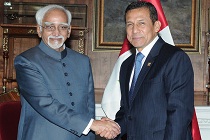 Courtesy: Ministry of External Affairs, India
Courtesy: Ministry of External Affairs, India
Since the late 1990s, both India and Peru have turned their focus to each others’ regions. New commercial exchanges can enhance the bilateral, but strategic elements must be incorporated if both countries are to benefit from each others' geopolitical alliances.
 Courtesy: Indian Council of World Affairs
Courtesy: Indian Council of World Affairs
The Indian Council of World Affairs republished Gateway House's Hari Seshasayee's feature on the India-Peru relationship. He argues that new commercial exchanges can enhance the bilateral, but strategic elements must be incorporated if both countries are to benefit from each others' geopolitical alliances.
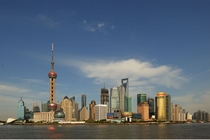 Courtesy: Pyzhou
Courtesy: Pyzhou
In a bid to end its dependence on foreign intellectual property and become a global power in science and technology, China is attempting to foster indigenous innovation. Are the U.S. government and business community right to be worried about threats to free trade and intellectual property rights?